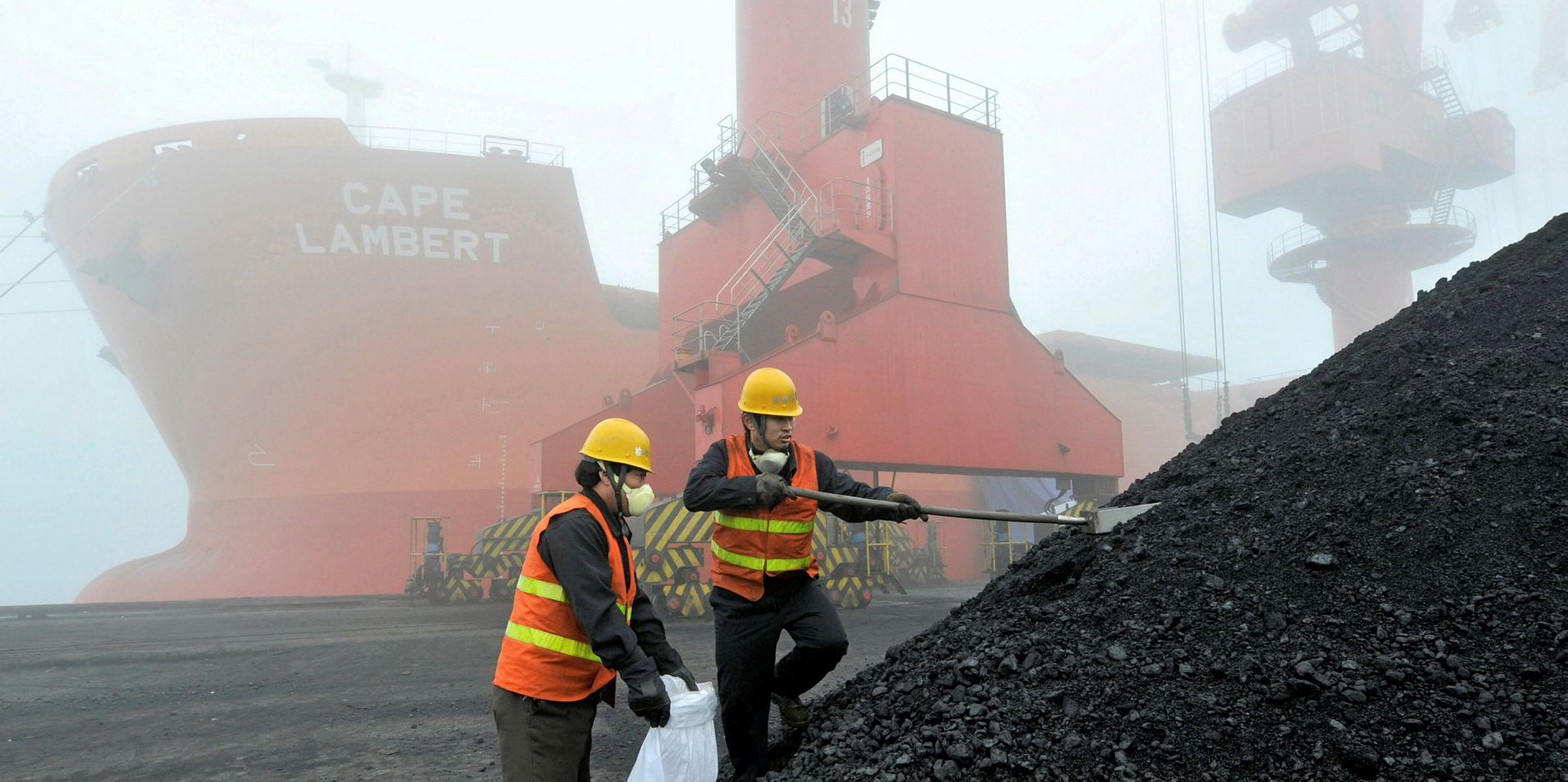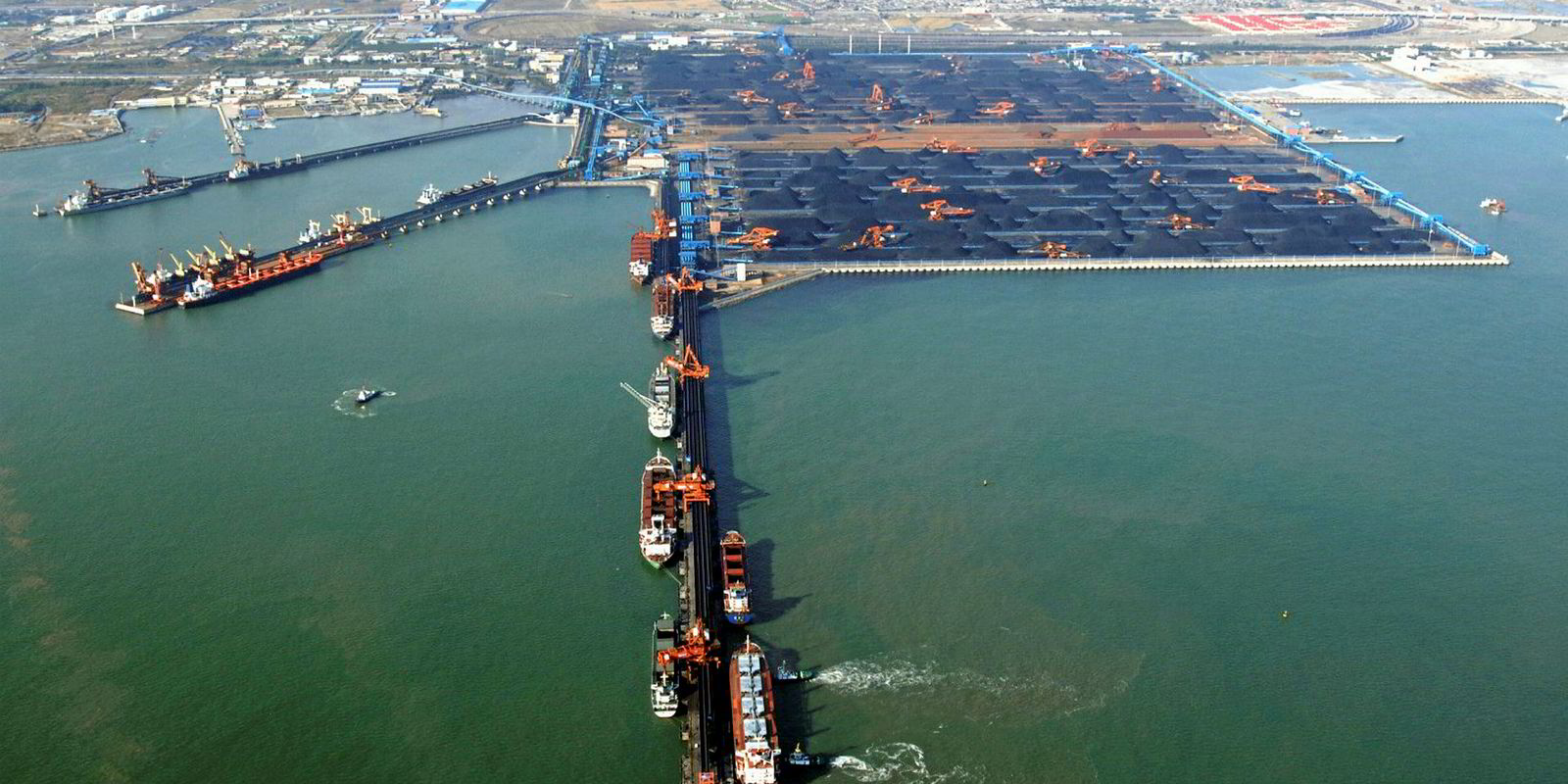Chartering sources expect minimal impact on the capesize market from import restrictions on Australian coal at Dalian and other northern Chinese ports.
Shipowning, broking and research organisations active in China are playing down the effects of the move.
The number of ships per week directly affected is small and restrictions appear designed to make noise for the benefit of the Australian public, they believe, thanks to a narrow geographical scope.
The decision has not been officially announced. Chinese government reticence on its own policies has made the outlines of the Dalian “ban” difficult to draw, and the foreign ministry has even denied that any such restrictions exist.
After several weeks of slower customs clearances, widespread reports emerged last week of off-the-record briefings at which officials of the Dalian branch of China Customs informed port operators and port agents that customs clearances for coal would be slowed dramatically.
Imports from certain countries, notably Russia and Indonesia, would be subject to annual quotas, while imports from unnamed “other” countries, meaning Australia, would be banned in practice.
Not for the first time, however, no documentation or written announcements were issued. Traders have no one in Beijing to call and must rely on word of mouth through intermediaries.

News agency Reuters reported that the ban encompassed Dalian itself, plus four smaller ports under Dalian’s control: neighbouring Beiliang, Panjin and Bayuquan in the inner Bohai Sea, and Dandong at the North Korean border.
Shipping and trading sources point to similar procedures in the second half of last year, when imports were slowed or restricted in some southern Chinese ports, but no official notice was issued.
Some market observers believe a more comprehensive coal ban would be hard for China to sustain.
“[If] China’s singling out of Australian coal is true, it may be difficult for China to maintain this for long, especially as the premium low-volatile hard coking coal from Australia [is] not easily replaceable by domestic production or other sources,” said Ralph Leszczynski, head of research at Singapore-based Banchero Costa.
“Restricting such supplies could thus result in shortages at their steel mills and a surge in domestic coal prices — situations which China may wish to avoid amid already slowing economic growth.”
The number of Australia-China capesize sailings potentially affected is very small, according to one major dry bulk shipowner.
“Roughly speaking, the whole of China normally has in the neighbourhood of 400 capesize calls a month, counting everything from mini-capes to Valemaxes, and they are overwhelmingly carrying iron ore. Coal is under 10%,” a research official of the shipowner said.
Drop in capesize trade
From 2014 to 2018, the owner’s research shows the percentage of capesizes arriving in China with coal gradually dropping from 8% of the total to 6% in dwt terms. Only one-third of the cargo is coking coal, the researcher added.
In practice, a ban on Australian coal will be a ban on coking coal, since Australian steaming coal is not competitive in China on delivered cost.
The shipowner official said the couple of capesizes per week arriving with coal from Australia would include ships at discharge ports all over China, not just the relevant area.
At a time when steel production is stable, the expected shortfall could probably be made up by coking coal imported from Mongolia by rail and truck, and from Russia by panamax and smaller vessels.
International security analysts regard the restrictions as a shot across the bows of the Australian government at a time of strained relations between the two countries.
“There is speculation that the coal restrictions could be a delayed reaction to Australia’s 2018 actions of blocking Chinese telecom firms from participating in its 5G network development, and implementing a foreign-interference law [perceived to be aimed at China],” said global consultancy Control Risks in a report to clients.
“However, the Dalian measures could plausibly be motivated by domestic coal price or environmental considerations.”
Limited scope and impact
The report characterised the coal import restrictions as “unconfirmed and of limited scope and impact”.
“[The] measure is likely to lead Australia to view coal (and iron ore) as potential leverage points for China, despite their mutual economic importance,” according to Control Risks.
“Creating uncertainty is conceivably an objective of China (which denies — plausibly — that Australian coal is being targeted), to influence future Australian decisions on sensitive China-related matters.”





